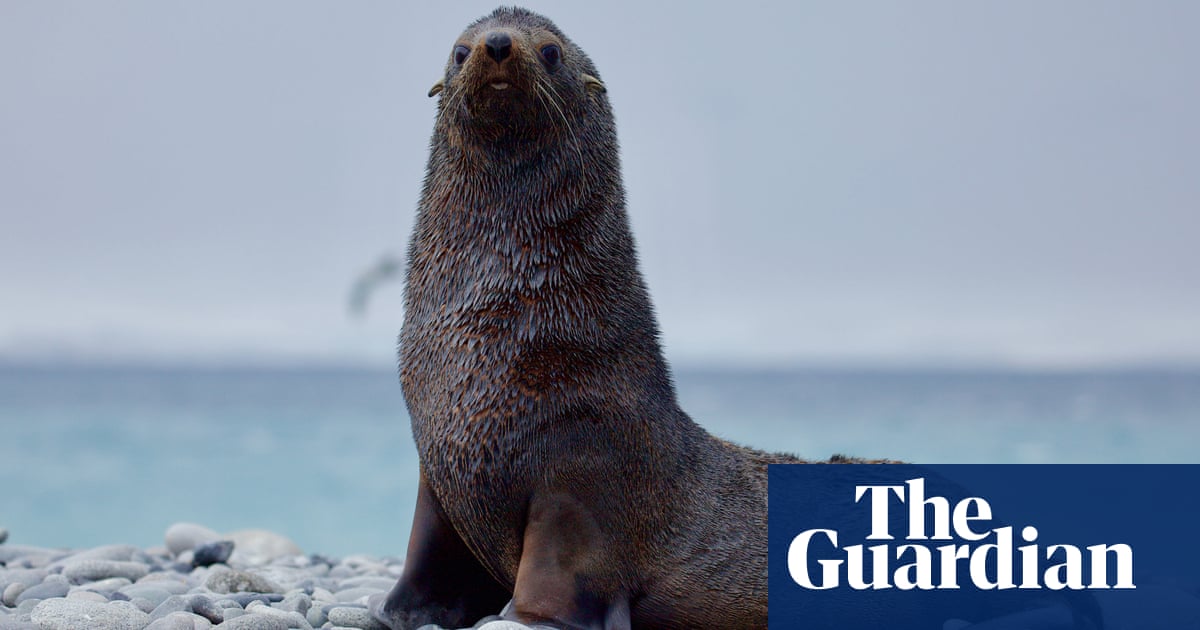
A major international conference on the Antarctic marine environment has failed to agree on new conservation areas despite hearing evidence the southern continent is facing a range of crises, including historically low sea ice levels, plummeting wildlife numbers and the first cases of bird flu.
Longstanding proposals to create nearly 4m sq km of marine protected areas did not receive consensus support largely due to opposition from the Russian government delegation, which arrived late due to visa-related delays and then repeatedly stalled discussions, according to multiple sources at the meeting in Hobart.
With significant agreement not possible, the meeting of the Commission for the Conservation of Antarctic Marine Living Resources in Hobart pushed debate on proposals for protected areas near the western Antarctic peninsula, in the Weddell Sea and in east Antarctica into next year.
Observers said the two-week meeting of 26 national governments and the European Union was presented with scientific evidence that the conservation areas were needed to preserve critical foraging and breeding grounds for penguins, toothfish, seals, and whales, and to reach a globally agreed goal of protecting 30% of oceans by 2030.
WWF Antarctic conservation manager Emily Grilly said it was “utterly disappointing” that there had been no significant progress after more than a decade of discussions, and a year of unprecedented change in Antarctica.
“The record low levels of sea ice and catastrophic breeding failure of emperor penguins should have been an alarm bell for countries to come together, prioritise conservation, and honour their commitment to establish [marine protected areas] with significant no-fishing areas,” she said.
The commission – known as Ccamlr (pronounced “camelar”) – was established by an international treaty and has been meeting in Tasmania, Australia’s southern-most state, since 1982. It has had only occasional success, most notably a breakthrough agreement in 2016 to create the world’s largest marine park in the Ross Sea. The Southern Ocean is about 10% of the global ocean and only 5% of it is protected.
after newsletter promotion
This year’s conference began with an opening day address from the US ambassador to Australia, Caroline Kennedy, who urged the commission to “meet the global demand for action” following substantial ice melting on the Antarctic peninsula, an unprecedented drop in the amount of sea ice surrounding the continent and a crash in the Antarctic fur seal population. During the meeting it was revealed that Avian flu had reached the Antarctic for the first time, prompting concerns about a breeding failure in the already fragile environment.
In an interview, Kennedy told the Guardian there was growing awareness about the importance of Southern Ocean krill to world food security, and highlighted concerns about a fourfold increase in krill catch over the past 15 years. Krill is nutrient rich and demand for it has increased as a source of protein, and for use in feed at fish farms. It is also directly or indirectly relied upon in the diets of nearly every Antarctic animal species.
“It’s not an exaggeration to say that Antarctic krill is critical to life on Earth, and setting standards for its sustainable management is one of your greatest responsibilities,” Kennedy told delegates.
The Russian delegation missed Kennedy’s speech and briefings on major scientific reports. Once it arrived, it opposed proposals to boost environmental protection. The meeting ran into overtime, finishing overnight Friday, with the commission’s scientific committee agreeing to hold a symposium in July focused on establishing a western Antarctic peninsula marine protected area and implementing an ecosystem-based approach to krill fisheries.
Claire Christian, executive director of the Antarctic and Southern Ocean Coalition, said there was some consolation in key conservation measures not being rolled back, but the commission was treading rather when it should be making ambitious decisions. “It feels like we are taking one step forward and two steps back on Antarctic marine protection,” she said.
Andrea Kavanagh, from the Pew Charitable Trusts, said marine protected areas would not stop the climate crisis, but would help make the Southern Ocean ecosystem more resilient. She said scientists had estimated it was likely 9,000 emperor penguin chicks died in the 2022 breeding season due to early sea ice melting. Another two years like that could make the species extinct, she said. “How many more seasons like this will continue without any action by Ccamlr?” Kavanagh said.
The Australian environment minister, Tanya Plibersek, said it was disappointing that the meeting had not agreed “despite overwhelming majority support by many members”. “We will continue to work with the commission to better protect the Southern Ocean and the precious marine creatures that call it home,” she said.
